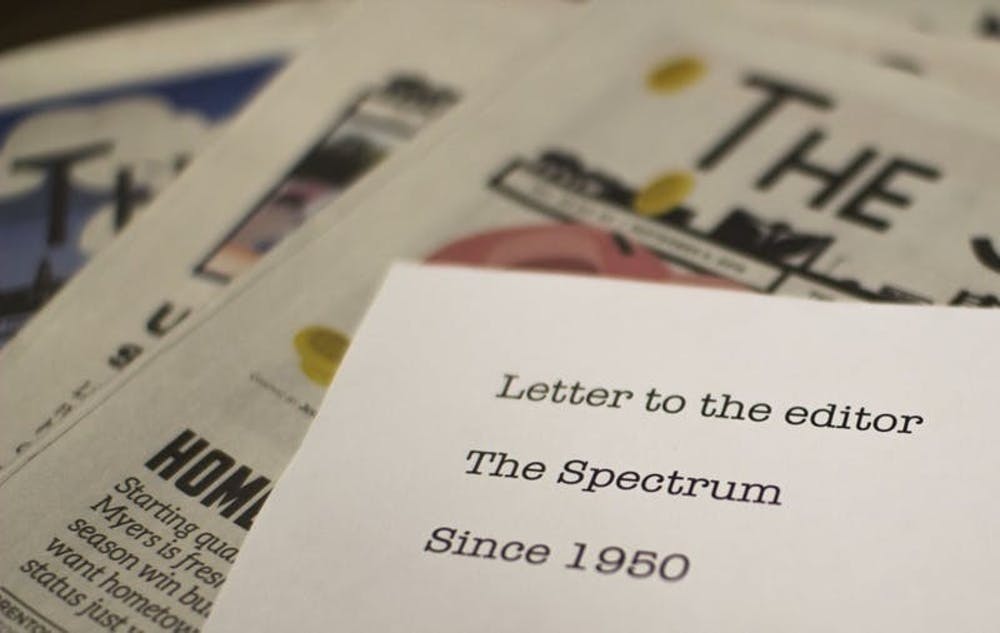Editor’s note: This letter was edited for AP Style. It otherwise remains in the condition in which it was sent.
“Maman, can you see my text?”
That message was not delivered.
Far away from our country, we Iranians are glued to our phones, following the media and keeping an eye out for any Iran-related news. We are worried about our loved ones back home and wonder what we should do. Just refreshing and monitoring the media every minute is all we can do to find out if the internet is still working over there, to see in which cities the protests are taking place, how the government has responded and how international media has covered the news.
On Sept. 16, Iran's “morality police” killed Mahsa Amini, a 22-year-old girl, who had traveled with her brother from Saqqez, a city in the west of Iran, to Tehran, the capital. At first she was arrested for “violating the hijab law.” Her brother pleaded with the police that “we are foreigners here. We do not know what we should do. Please!” Regardless, the police arrested Mahsa and suggested her brother go to the morality police station to find out what to do next. Her brother arrived there just in time to see the ambulance carrying Mahsa’s body to the hospital. The police said she suddenly went into heart failure at the station, but the eyewitnesses claimed she was beaten and her head hit the side of a police car. Despite all these narratives and the medical evidence, the police, like always, denied their cruelty and announced other reasons for her death. Sadly, Mahsa died after two days in a coma due to cerebral hemorrhage and stroke.
The compulsory hijab has been practiced in Iran for 44 years now, a law that violates not only women’s rights but human rights as well. Then, the philosophy behind the “morality police” is to walk on the streets and compel women to wear headscarves and more modest clothing in public, and if they do not, they will be arrested, taken to the police station, threatened and forced to sign a commitment that they are not going repeat this villainous act. As these forces have become more and more strict over the past few years, women’s protests have increased. Their demands are for liberation and justice.
Mahsa, however, was not even a protester. She had just come to Tehran for a short trip when she was killed. In one sentence, an innocent 22-year-old girl was killed by police forces simply because of her gender, because of being a woman. Seeing brutality and injustice for so many years makes you think that you will get used to them. It seems that’s not the case; the truth is that brutality and injustice will always be unbearable, and every new injustice case will raise questions about humanity. Mahsa’s murder has shocked not only Iranians, but the entire world.
It’s been five days [as of this writing] since Mahsa’s unfair death, and protests against government brutality are growing across Iran. In a symbolic act of resistance, women are burning their headscarves and cutting their hair to show that they are standing up against oppression and injustice. Their videos are all over the internet now, and you can read sorrow, pain, rage and hatred from their faces. Zān, Zendegī, Azadī (Woman, Life, Freedom) is the most famous slogan that you can hear in these protests, and in my opinion, the most meaningful one. Despite the fact that these women are fighting for their basic rights, the government’s response is usually not peaceful. Even the internet connections have been shut down after five days, so there will be no more news about exactly what is happening there.
One of my friends asked me yesterday what we should do as Iranians out of the country and as people who are still able to “speak up.” Sometimes, you may feel guilty that you are free and you can speak while your people are suffering in their own country. We, Iranian students at UB, and most Iranians over world are filled with rage, anger and hatred. My friend told me that she could not even cry; she was just wandering around the streets, with no destination, with no connection to her family and friends back in Iran and wondering what she should do. I told her that none of us could even cry because rage and anger are stronger emotions than sorrow and sadness. Not only are we sad, but we are angry and enraged as well, and that’s why our tears are not coming, but our fists are in the air. We cannot just weep and mourn this time. We want to raise our voice; we want to stand in solidarity with our sisters back in Iran and fight against injustice, oppression, and brutality.
Once, a great man, Martin Luther King, Jr., said, “injustice anywhere is a threat to justice everywhere.” He fought for civil rights and stood against Jim Crow laws and other forms of discrimination, and so he caused big changes in the US society. Let’s believe in this quote. Let’s hear women on the other side of the world; let’s be their voice, the voice of people who are deprived even of an internet connection to narrate their stories. Let's consider their injustice discrimination. Let’s say her name: Mahsa Amini!
-Faegheh Hajhosseini, PhD student in comparative literature





